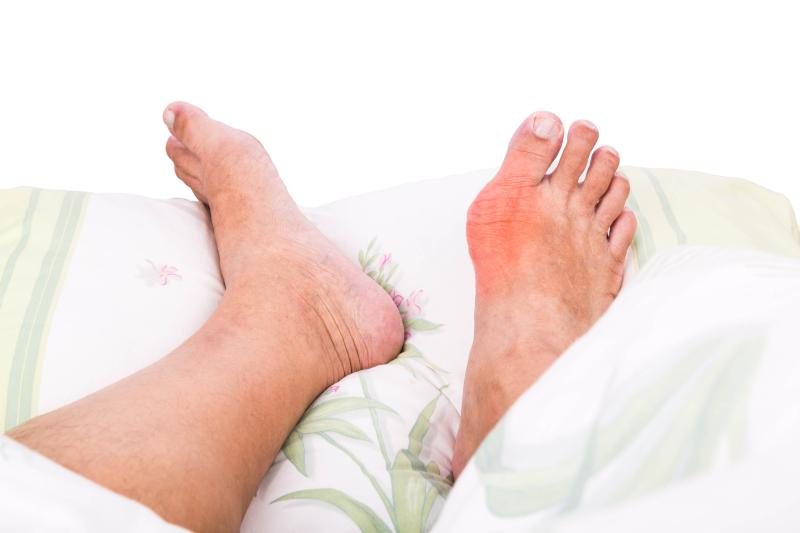
A bidirectional relationship exists between gout and diabetes mellitus in the postpancreatitis setting, suggests a recent study. Additionally, a history of gout is a predictor of postpancreatitis diabetes mellitus (PPDM) in women but not in men.
Individuals often have low-grade inflammation following acute pancreatitis and subsequently develop metabolic sequelae such as PPDM, according to the authors.
Risk analysis for gout included a total of 10,117 individuals, while that for PPDM included 9,471 participants. PPDM showed a significant correlation with a higher risk of gout in the overall cohort (adjusted hazard ratio [HR], 1.88, 95 percent confidence interval [CI], 1.15–3.06) and women (adjusted HR, 2.72, 95 percent CI, 1.31–5.65), but not in men (adjusted HR, 1.42, 95 percent CI, 0.73–2.78).
On the other hand, pre-existing gout also correlated with a higher risk of PPDM in the overall cohort (adjusted HR, 1.58, 95 percent CI, 1.04–2.41) and women (adjusted HR, 2.66, 95 percent CI, 1.29–5.49), but not in men (adjusted HR, 1.31, 95 percent CI, 0.78–2.20).
In this study, the authors used nationwide pharmaceutical dispensing data linked to hospital discharge data in New Zealand to identify gout and PPDM among individuals after first episode of acute pancreatitis between 1 January 2007 and 31 December 2015.
Multivariable Cox regression analyses were then performed, adjusting for age, sex, ethnicity, social deprivation index, alcohol consumption, tobacco smoking, comorbidities, medications (eg, glucocorticoids, statins, and oestrogens), and characteristics of acute pancreatitis.